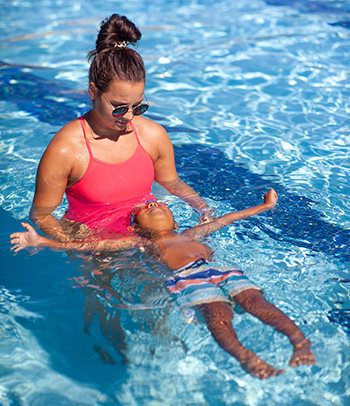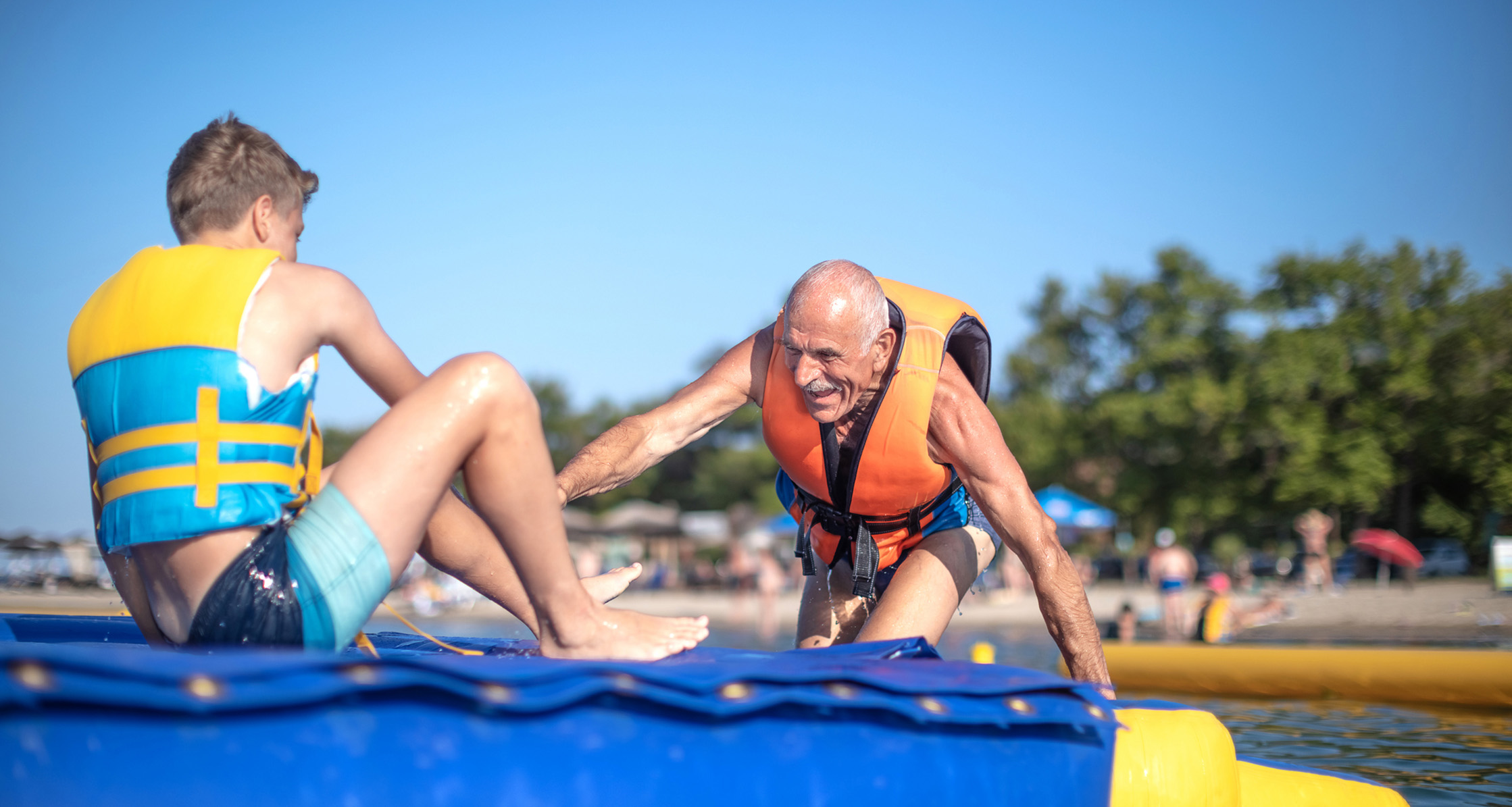When the summer heat hits, make sure you’re ready to jump in the pool, hit the waterpark or enjoy a day at the beach safely.
Water activities are a great way to stay cool with friends and family during the summer heat. Many of us plan activities that include water such as fishing, swimming in a backyard pool, taking a trip to the beach, enjoying a day at the local splash pad or taking the kids to the water park. No matter what activity it is, it’s important to ensure you and your loved ones know what it takes to be safe in and around water.
Check out these important water safety tips to learn how to protect yourself while having fun in the water this summer.
Important Facts About Drowning
The Centers for Disease Control and Prevention (CDC) provides several facts about drowning that can help us understand the seriousness and importance of water safety.
Did you know…
- Drowning is a leading cause of death for children.
- Drowning death rates have increased in recent years, with big increases in drownings for adults between the ages of 65-74, as well as certain ethnicities such as American Indian, Alaska Native and Black people.
- Even non-fatal drowning can result in serious health problems such as brain damage or long-term disability.
- Drowning is often silent.
- It can happen in seconds.
- It can happen to anyone, any time there is access to water.
- It can happen in shallow water, including bathtubs, hot tubs and even water-filled buckets.
- 40 million adults don’t know how to swim.
The good news is that drowning is preventable. By learning how to swim, staying alert around water and knowing how to respond in an emergency, you and your family can stay safe and still enjoy water activities this summer.
Water Safety Tips for You and Your Family
- Make sure you and your family members learn how to swim.
 No matter your age, it’s never too late to learn to swim. Learning how to swim is one of the best ways to protect yourself around water. You don’t have to be an Olympic swimmer, but the American Red Cross recommends achieving the skills of water competency for everyone, which include being able to enter water over your head, get a breath, stay afloat or tread water, change position, swim a short distance, then get out of the water safely. Search your local community for places that offer swim lessons.
No matter your age, it’s never too late to learn to swim. Learning how to swim is one of the best ways to protect yourself around water. You don’t have to be an Olympic swimmer, but the American Red Cross recommends achieving the skills of water competency for everyone, which include being able to enter water over your head, get a breath, stay afloat or tread water, change position, swim a short distance, then get out of the water safely. Search your local community for places that offer swim lessons. - Pay attention when you’re around water. It only takes a moment for a child or a weak swimmer to drown. In the time it takes you to respond to a text or apply sunscreen, a death or injury in the water may occur. It isn’t just the big waves of the ocean or a lake either – people drown in backyard pools and hot tubs, as well as rivers and streams.
- Know your limits. Swimming isn’t easy, even for adults. If you aren’t a strong swimmer, do not try to dive into deep water or rescue someone else. If you aren’t in great shape physically, do not try to swim long distances or too far away from shore. If you’re extremely tired or if you’re worried that it’s too cold to swim, don’t do it.
- Don’t swim alone. Even if you’re a strong swimmer, swim in areas where lifeguards are present or with another person if a lifeguard isn’t available. If you are the designated water watcher, make sure you avoid distractions like your phone.
- Be aware of your surroundings. Swimming successfully in a backyard pool isn’t the same as swimming in an ocean with rip currents. Swimming in a lake with underwater hazards isn’t the same as hanging out in a hot tub. Do you know if there are rocks or weeds you could get stuck in beneath the surface? Is there a current that could change or pick up strength? Is there a strong wind that might cause debris to enter the water and make it unsafe? Is bad weather moving in that could change the water’s safety? The more you know about your surroundings, the safer you’ll be.
- Wear an appropriate life jacket. Your life jacket should be U.S. Coast Guard-approved for your weight, size and water activity. Non-swimmers and weak swimmers should always wear a life jacket around water. Everyone, regardless of swimming skill, should wear a life jacket while boating. Floaties, inflatable toys, armbands and water wings do not prevent children from drowning and can easily slip off. A U.S. Coast Guard-approved life jacket is more protective.
- Do not use alcohol or drugs while you’re swimming or supervising swimmers. You need to remain alert and be able to respond quickly if an emergency occurs, so avoid drinking and using drugs when planning activities that involve water. Even some prescription medications may make it difficult to stay safe in the water, so be sure to talk to your health care provider if you’re concerned about a medication you’re taking.
- Understand what actions to take in an emergency situation.
- Recognize the signs to look for if someone is in trouble or drowning. A swimmer may need help if they aren’t making forward progress, are vertical but unable to move or tread water, or are motionless or face down in the water.
- Rescue or remove the person from the water safely, but don’t put yourself in danger. For example, if you aren’t a strong swimmer, don’t run into the water. Alert someone else or use the “reach and throw, don’t go” rule, which recommends actions like throwing a life preserver into the water and pulling someone to safety without getting into the water yourself.
- Ask someone to call 911.
- Begin rescue breathing and CPR. To learn more about CPR and how it can help save lives, check out The Importance of Knowing Hands-Only CPR.
- Learn more. The American Red Cross offers a free online water safety course for parents and caregivers, which focuses on developing an awareness of the risks of drowning and how to minimize those risks, especially for young children. The American Red Cross also has several additional resources related to water safety.
When the heat starts barreling down on you this summer, make sure you’re ready to jump in the pool, hit the waterpark or enjoy a day at the beach safely.







